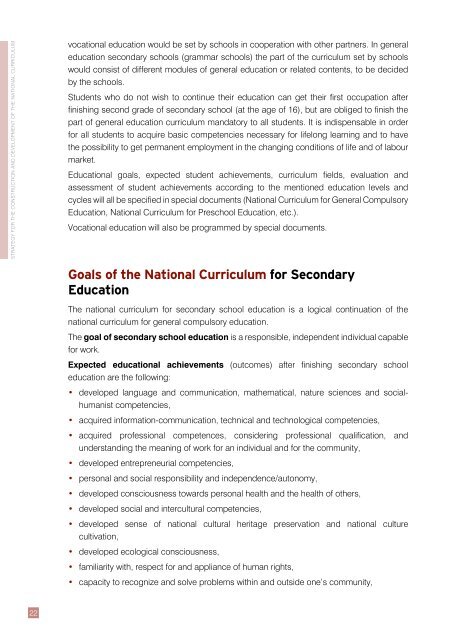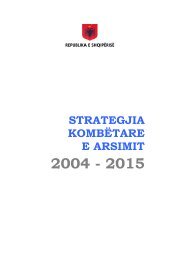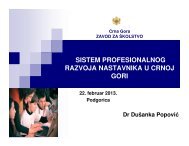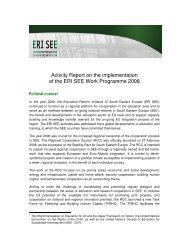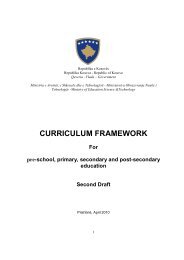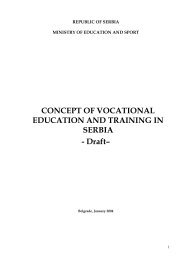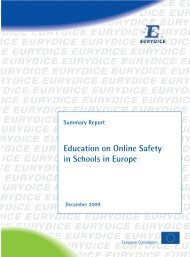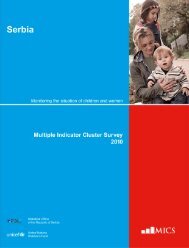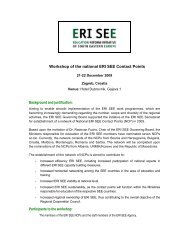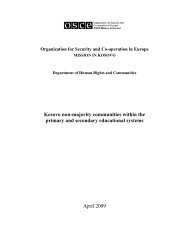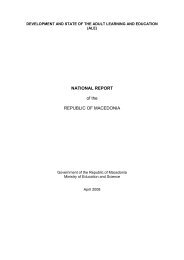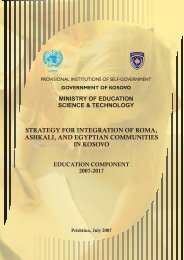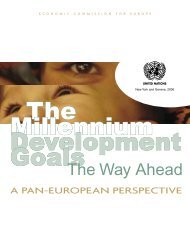NATIONAL CURRICULUM
NATIONAL CURRICULUM
NATIONAL CURRICULUM
- No tags were found...
Create successful ePaper yourself
Turn your PDF publications into a flip-book with our unique Google optimized e-Paper software.
STRATEGY FOR THE CONSTRUCTION AND DEVELOPMENT OF THE <strong>NATIONAL</strong> <strong>CURRICULUM</strong>vocational education would be set by schools in cooperation with other partners. In generaleducation secondary schools (grammar schools) the part of the curriculum set by schoolswould consist of different modules of general education or related contents, to be decidedby the schools.Students who do not wish to continue their education can get their first occupation afterfinishing second grade of secondary school (at the age of 16), but are obliged to finish thepart of general education curriculum mandatory to all students. It is indispensable in orderfor all students to acquire basic competencies necessary for lifelong learning and to havethe possibility to get permanent employment in the changing conditions of life and of labourmarket.Educational goals, expected student achievements, curriculum fields, evaluation andassessment of student achievements according to the mentioned education levels andcycles will all be specified in special documents (National Curriculum for General CompulsoryEducation, National Curriculum for Preschool Education, etc.).Vocational education will also be programmed by special documents.Goals of the National Curriculum for SecondaryEducationThe national curriculum for secondary school education is a logical continuation of thenational curriculum for general compulsory education.The goal of secondary school education is a responsible, independent individual capablefor work.Expected educational achievements (outcomes) after finishing secondary schooleducation are the following:• developed language and communication, mathematical, nature sciences and socialhumanistcompetencies,• acquired information-communication, technical and technological competencies,• acquired professional competences, considering professional qualification, andunderstanding the meaning of work for an individual and for the community,• developed entrepreneurial competencies,• personal and social responsibility and independence/autonomy,• developed consciousness towards personal health and the health of others,• developed social and intercultural competencies,• developed sense of national cultural heritage preservation and national culturecultivation,• developed ecological consciousness,• familiarity with, respect for and appliance of human rights,• capacity to recognize and solve problems within and outside one’s community,22


